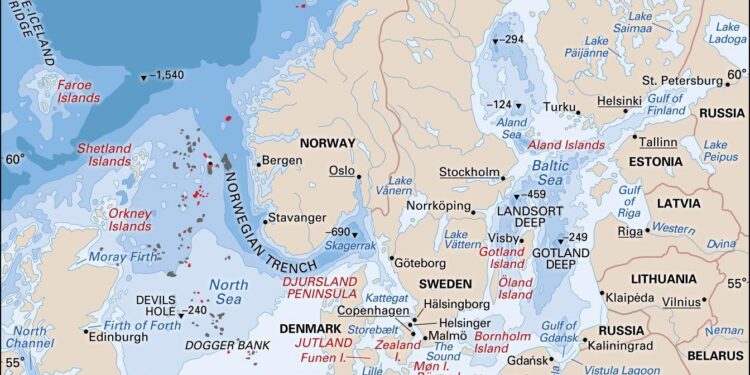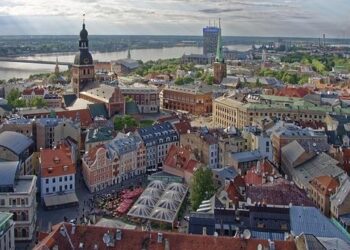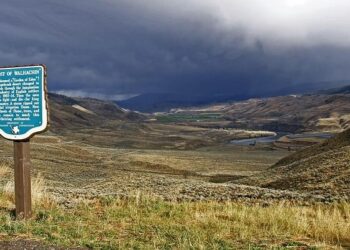The latest issue of New Eastern Europe, Issue 4/2025, takes a close look at the shifting dynamics in the Baltic Sea region as nations strive to rebalance political, economic, and security priorities amid emerging challenges. With increased geopolitical tensions, evolving energy strategies, and renewed calls for regional cooperation, this edition brings together expert analyses and in-depth reporting to explore how countries bordering the Baltic Sea are navigating a complex and rapidly changing landscape. From Helsinki to GdaŇĄsk, the spotlight is on efforts to redefine alliances and foster stability in one of Europe’s most strategically significant areas.
Reassessing Geopolitical Dynamics in the Baltic Sea Region
The Baltic Sea region is undergoing a profound transformation, driven by shifting alliances and emerging security concerns. The recalibration of power among local actors, alongside the intensifying influence of external players, is redefining the strategic landscape. Key capitals are increasingly focusing on multifaceted cooperation, balancing economic interdependence with the demands of regional security. This dynamic interplay is shaping initiatives around energy independence, maritime security, and infrastructure resilience, which are critical in stabilizing the region’s geopolitical equilibrium.
Current drivers shaping the Baltic geopolitical environment include:
- Enhanced trilateral military exercises involving Baltic states, Poland, and Nordic countries.
- Expansion of renewable energy corridors to reduce dependence on non-European suppliers.
- Accelerated development of digital infrastructure to strengthen cybersecurity frameworks.
- Increased diplomatic engagements through multilateral forums focusing on regional stability.
| Factor | Impact on Stability | Regional Response |
|---|---|---|
| Energy Diversification | Reduces external leverage | Joint Baltic offshore wind projects |
| Security Cooperation | Enhances deterrence posture | Increased NATO presence |
| Cybersecurity Initiatives | Protects critical infrastructure | Shared intelligence platforms |
Economic Challenges and Opportunities for Eastern European States
Eastern European states are navigating a complex economic landscape marked by both significant hurdles and promising avenues for growth. Inflationary pressures, energy dependency, and uneven access to capital continue to challenge the region’s development, exacerbated by geopolitical tensions. However, the swift adaptation of digital technologies and increasing integration into European supply chains present unique growth opportunities. Policymakers are focusing on diversifying energy sources, bolstering innovation hubs, and strengthening cross-border trade networks to mitigate risks and enhance economic resilience.
Strategic investments in infrastructure and education are at the forefront of the region’s agenda, aiming to transform demographic challenges into a workforce advantage. This dynamic is further supported by targeted EU funds designed to support sustainable growth and green transition strategies. Key sectors such as manufacturing, IT, and renewable energy stand to benefit from these developments, creating a potential boost in employment and international competitiveness.
- Energy diversification: Reducing reliance on traditional fossil fuels
- Digital transformation: Accelerating e-governance and tech start-ups
- EU fund support: Allocating billions towards sustainable growth projects
- Workforce upskilling: Emphasis on STEM education and vocational training
| Country | GDP Growth (2024) | Key Export | Investment Focus |
|---|---|---|---|
| Poland | 3.2% | Automotive | Renewables |
| Estonia | 2.8% | IT Services | Digital infrastructure |
| Latvia | 2.5% | Wood Products | Green energy |
| Lithuania | 3.0% | Electronics | Education |
Strategic Policy Recommendations for Regional Stability and Growth
To ensure long-term stability and spur economic growth in the Baltic Sea region, a multi-layered approach is essential. Governments must prioritize strengthening cross-border infrastructure, focusing on transport corridors and energy grids that enhance connectivity and resilience. Additionally, fostering deeper cooperation on cybersecurity and intelligence sharing can help counter growing hybrid threats. Investment in sustainable technology and green innovation should be accelerated, supported by regional development funds aimed at reducing disparities between eastern and western parts of the region.
Key policy measures should include:
- Enhancing maritime security through coordinated naval presence and joint training exercises.
- Promoting SME integration into pan-Baltic value chains to boost entrepreneurship and job creation.
- Strengthening education and labor mobility across borders to build a versatile, competitive workforce.
| Priority Area | Proposed Action | Expected Impact |
|---|---|---|
| Infrastructure | Cross-border rail & energy hubs | Improved trade & energy security |
| Security | Joint maritime patrols | Deterrence of illicit activities |
| Innovation | Green tech funding | Lower emissions, new jobs |
Key Takeaways
As Issue 4/2025 of New Eastern Europe demonstrates, rebalancing the Baltic Sea region remains a complex and evolving challenge. With geopolitical tensions, economic shifts, and environmental concerns converging, the countries bordering the Baltic must navigate a delicate path toward cooperation and stability. The insights presented in this edition underscore the importance of renewed dialogue, strategic partnerships, and inclusive policies to foster resilience across the region. As the Baltic Sea continues to be a critical nexus of European affairs, its future will depend on the ability of Eastern and Northern European nations to find common ground amid shifting dynamics.
















